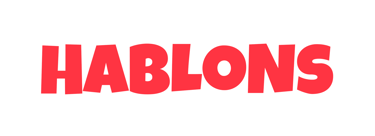Modals of Obligation, Necessity & Advice
GRAMMAR-(B1-B2)
10/21/2025
Target Structures:
Must / Have to / Don’t have to / Mustn’t / Should / Ought to / Need to / Didn’t need to
Goal:
Use modal verbs correctly to express rules, duties, necessity, and give advice confidently in conversation.
1. Warm-Up (3 min)
🗣️ Questions:
What are some rules you must follow at work or school?
What is something people don’t have to do but often do anyway?
What advice would you give someone starting a new job?
💬 Sample Answer:
At my job, I have to arrive on time. You don’t have to wear formal clothes, but you should look tidy.
🎯 Focus: get students using modals in context from the start.
2. Presentation (8 min)
A. Obligation and Necessity
✅ Must / Have to / Need to → obligation, rules, necessity
Must – strong personal obligation (speaker’s opinion)
You must wear a helmet. (It’s really important!)
Have to – external obligation (a rule or law)
You have to show your ID to enter.
Need to – necessity, something required
I need to study for my test.
❌ Mustn’t – prohibition (not allowed)
You mustn’t use your phone during class.
✅ Don’t have to / Don’t need to → lack of necessity
You don’t have to come if you’re busy. (It’s optional.)
B. Advice
✅ Should / Ought to → recommendation, good idea
You should see a doctor.
You ought to get more rest.
🧠 Note: “Should” is more common in everyday speech; “ought to” sounds slightly more formal.
C. Past Forms
✅ Had to → past obligation
I had to do my homework before dinner.
✅ Didn’t need to / Didn’t have to → past lack of necessity
We didn’t need to cook; my dad ordered pizza.
3. Controlled Practice (6 min)
Complete the sentences with the correct modal verb.
You ______ (not / park) here. It’s forbidden.
She ______ (study) hard if she wants to pass.
We ______ (not / go) to the meeting yesterday — it was cancelled.
You ______ (take) an umbrella. It looks like rain.
He ______ (wear) a uniform at his old job, but now he doesn’t.
You ______ (be) careful when crossing the road.
You ______ (not / tell) anyone — it’s a secret!
I ______ (get up) early tomorrow; my train leaves at 7.
✅ Answer Key & Explanations
mustn’t → expresses prohibition (not allowed).
has to / must / needs to → shows obligation or necessity.
didn’t have to / didn’t need to → there was no need, the event was cancelled.
should / ought to → giving advice (good idea to take one).
had to → past obligation, no longer true.
must / have to → strong necessity (safety rule).
mustn’t → forbidden action.
have to / need to → obligation about the future.
🧩 Why others are wrong:
“Don’t have to” means optional, not forbidden.
“Shouldn’t” means not a good idea, not prohibited.
Using present instead of past breaks time consistency.
4. Interactive Practice (5 min)
Complete the sentences with your own ideas.
You mustn’t ______ in a library because ______.
You should ______ if you feel stressed.
People have to ______ when they travel abroad.
You don’t have to ______ on weekends, but I often do.
I need to ______ before I can relax tonight.
💬 Example:
You mustn’t shout in a library because it’s a quiet place.
🎯 Focus: use each modal naturally in context.
5. Free Practice (4 min)
🗣️ Real-Life Scenarios:
Discuss and decide what’s necessary or optional in these situations:
A student preparing for an exam
A person renting a new flat
A tourist visiting a foreign country
Someone starting a healthier lifestyle
💬 Example:
When you travel abroad, you have to bring your passport, and you should learn a few local words.
🎯 Encourage full-sentence responses mixing “must”, “should”, “don’t have to”.
6. Extra Discussion (3–4 min)
💬 Conversation Questions:
What’s something you must do every day?
What’s something you don’t have to do but still choose to?
What’s the best piece of advice you’ve ever received?
What’s a rule you think people shouldn’t have to follow? Why?
Do you think people today feel more or less pressure to follow rules?
🎯 Encourage opinion-based answers and examples.
7. Wrap-Up & Review (2 min)
🎯 Quick Recap:
Must / Have to / Need to → express obligation or necessity
Mustn’t → prohibition
Don’t have to / Don’t need to → no obligation
Should / Ought to → advice or recommendation
Had to → past obligation
Didn’t need to → past lack of necessity
💬 Mini Challenge:
Tell me two things you must do and one thing you don’t have to do today.


